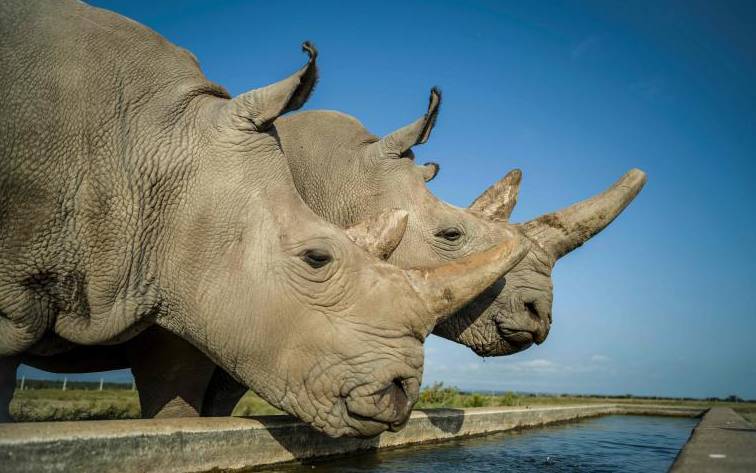×
The Standard e-Paper
Home To Bold Columnists

A handout image made available by the Ol Pejeta Conservancy on August 23, 2019, shows two northern white female rhinos, Najin, 30, (L) and daughter Fatu, 19, drinking at a trough at the Ol Pejeta Conservancy in central Kenya on August 20, 2019. [File, Standard]
Kenya joins the world in celebrating World Rhino Day on Sunday, September 21, as it marks a key milestone in reversing imminent extinction of the critically endangered Northern White Rhinos.